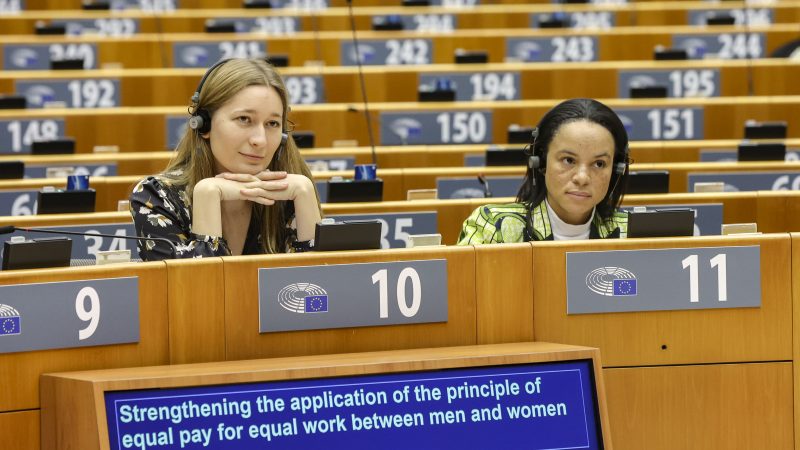A large majority in the European Parliament voted in favour of adopting the EU’s pay transparency directive aiming to narrow the EU gender pay gap during a plenary session on Thursday (30 March).
“With this vote, we abolish pay secrecy, strengthen workers’ rights and workers’ individual right to information,” member of Parliament and co-rapporteur of the directive, Kira Marie Peter-Hansen (Greens), said during a plenary debate before the vote.
The directive, proposed by the Commission in March 2021, will now need to formally be adopted by member states and transposed into national law within three years after entering into force.
Closing the gender pay gap
The directive seeks to make salaries more transparent by obliging companies with more than 100 employees to report and fix their wage disparities, in a bid to narrow the EU gender pay gap, which currently stands at 12.7%.
Employers will need to take corrective measures if the pay gap exceeds 5% without justifications, while employees will have the right to access sex-disaggregated data on salary and know the criteria used to define salary and pay rises, which will need to be gender-neutral.
The directive will also ensure job-seekers have access to information on the pay range of positions they apply for, while employers will not be able to ask about their previous pay, limiting the possibility of their salary history influencing the pay offered to candidates.
Member states will need to set up penalties if the principle of equal pay is not respected, while workers will have the right to compensation if companies do not respect equal pay obligations.
Moreover, under the new pay transparency rules, intersectional discrimination will be considered an aggravating factor.
“This legislation is progressive, modern, feminist, liberal, intersectional,” Samira Rafaela (Renew), co-rapporteur on the file, told the plenary, adding that pay transparency rules previously applied by some member states had a positive impact on pay equality.
“This is the very first step to close the gender pay gap,” she said.
Wide support
During the plenary, 427 members of Parliament voted in favour of the directive, with 79 votes against and 76 abstentions.
The directive received wide cross-party support from EU lawmakers of the EPP, Renew, S&D, and Left groups, while several MEPs from far-right parties complained that the directive will create additional administrative burdens for companies and that it interferes with national competences.
The EU Commissioner for Equality Helena Dalli welcomed the Parliament’s support for the new rules.
“Today’s adoption of the pay transparency directive is a significant step towards addressing the gender pay gap in the European Union and increasing women’s economic and financial independence,” she said.





